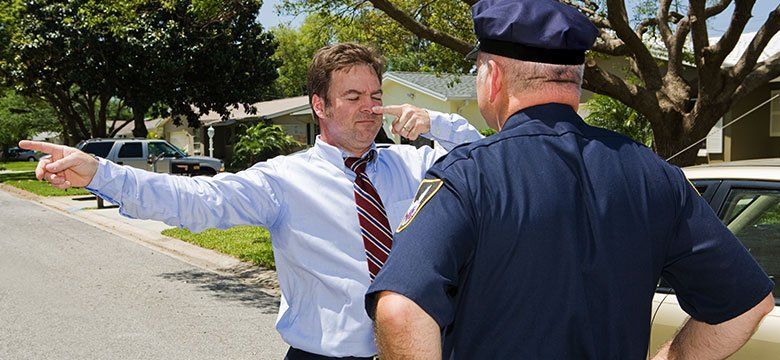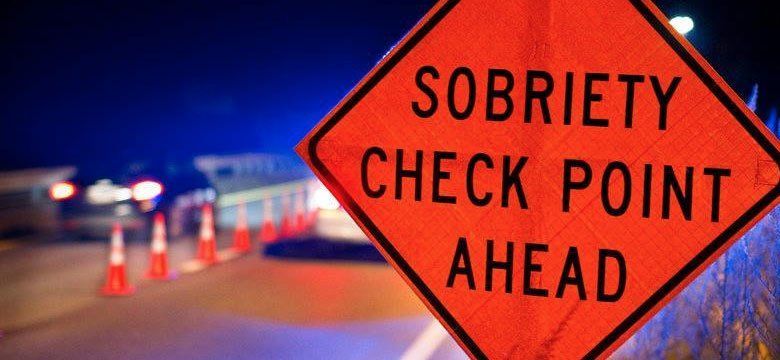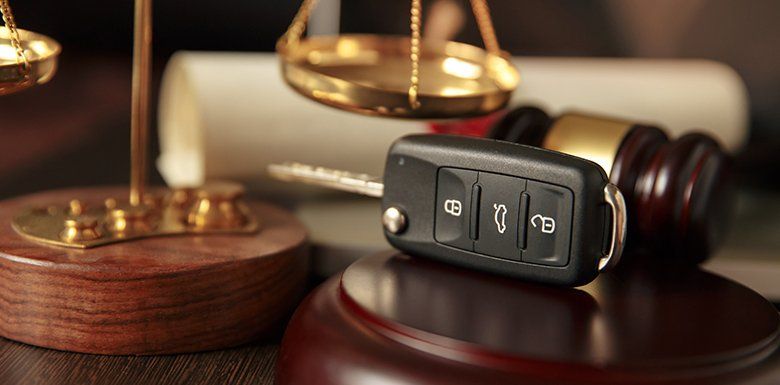If you were stopped by a police officer and arrested for a DWI in North Carolina, we recommend calling a DWI lawyer from Goolsby Law Firm, PLLC right away. DWI charges should always be taken seriously, but there is no need to panic. By contacting a criminal defense attorney as soon as possible, you have someone who is on your side and there to protect your rights.
For more than 34 years, Thom Goolsby has fought hard for those charged with DWIs. He will carefully examine the evidence in your case and develop a strategy to obtain the best possible outcome, whether that is having the charges dropped, winning an acquittal at trial or negotiating a plea bargain.
Do not hesitate to call 910-262-7401 or submit your information online to schedule a free consultation.
DWI In-depth With Thom Goolsby
North Carolina DWI Laws
Under North Carolina General Statutes (NCGS) §20-138.1, you can be charged with a DWI if you drive any vehicle on any street, highway, or public area:
- While under the influence of an impairing substance;
- After consuming enough alcohol to bring your blood alcohol concentration to 0.08% or more; or
- With any amount of a Schedule I controlled substance in your blood or urine.
Most likely, you thought you had to have a BAC (Blood Alcohol Content) at or above 0.08% to be convicted of a DWI. But the law makes it clear that this is only one way in which you may be charged — and it applies only if you are at least 21 years old and driving a personal vehicle.
If you are under 21 years old, then you cannot have any alcohol in your system while you drive based on NCGS §20-138.3. If you have your Commercial Driver’s License and are driving a commercial vehicle at the time, then under NCGS §20-138.2, the BAC limit is 0.04%.
Additionally, you do not need any alcohol in your system to be charged with a DWI. A Schedule I substance, which include heroin, Ecstasy, opiates, cocaine, and GHB, and any other impairing substances, including marijuana, can lead to a conviction.
Whether it is your first DWI or a subsequent offense, DWI charges should always be taken seriously. Attorney Thom Goolsby can aggressively defend you.
North Carolina’s Implied Consent Law
The way in which the police determine if you have drugs or alcohol in your system and whether you should be charged with a DWI is through one or more chemical tests. You may think you can simply refuse these tests and then the police will have less evidence against you. It is true that you can refuse a breath, urine, or warrantless blood test. However, there are civil and criminal consequences for doing so.
Based on NCGS §20-16.2, you have given your implied consent to chemical tests by driving in the state. If you are arrested for a DWI, the police officer will inform you of North Carolina’s implied consent law and ask you to submit to a breath test. The officer will also inform you that if you refuse to take the chemical test, you will have your driver’s license suspended for at least one year.
In some cases, the officer may provide you with notice of the implied consent law at the traffic stop and then ask you to blow into a roadside breath test, better known as a breathalyzer. It is your choice whether you comply or not.
If you are not arrested and not given the implied consent law notice before you are asked to take a roadside breath test, you can refuse without any fear of civil or criminal consequences.
During or immediately after a DWI arrest, we recommend you ask to call a DWI lawyer and do so as quickly as possible. Your lawyer can walk you through whether it benefits you to submit to the test or refuse. Refusal does not guarantee that you will avoid charges or a conviction since the refusal itself can be used as evidence against you in court.
What Our Client Say
“I lost my carry concealed permit due to the misapplication of the law by law enforcement. My guns were taken from my home, and my permit was suspended. Thank you Thom Goolsby for standing up for the Second Amendment and my gun rights. You corrected the mistake of law enforcement, and I got my permit back. I appreciate your skill and advocacy.”
Criminal Defense Client
“Thank you Thom Goolsby for helping me with my case. I heard that you were a super attorney, and I heard right! Thank you for your attention to detail and for helping me with this important matter. Your office was always available to assist me, and your care and concern meant a great deal to me. If I ever need an attorney again, you will be the first person that I call.”
Personal Injury Client
“Thank you for walking me through the process for getting my open container and underage possession of alcohol charges dismissed. You arranged for a very simple deferred prosecution. It was easy to comply, and my record is now clean. I appreciate your excellent help!”
Criminal Defense Client
Standardized Field Sobriety Tests in Wilmington, NC
While North Carolina law requires you to submit to one or more chemical tests if you are arrested for a DWI, there is no law requiring you to take one or more standardized field sobriety tests (SFSTs).
SFSTs are used by the police to gather clues that you have impaired judgment or motor skills due to alcohol or drugs. The officer will ask you to perform physical and/or cognitive tests and will carefully observe you throughout the process. The officer is looking for specific clues depending on the test, such as your inability to maintain your balance.
There are three tests standardized by the National Highway Traffic Safety Administration:
HORIZONTAL GAZE NYSTAGMUS TEST
When you look to the side, your eyes make involuntary jerking motions. When you are intoxicated, these jerking motions are said to be exaggerated, especially when you look far to one side or the other. The officer will have you stand still, look at a specific object, and then follow that object with your eyes only. The officer is observing the involuntary motions of your eyes.
WALK AND TURN TEST
You will be asked to stand with the heel of one foot touching the toes on your other foot with your hands at your side. Then you will be given instructions to take nine heel-to-toe steps, counting aloud, turn, and then return in the same way. The officer is observing whether you can follow instructions, have to stop and start while you walk, do not touch your heel to your toe, lose your balance, use your arms to balance or take the wrong number of steps.
ONE LEG STAND TEST
You will be asked to stand with your feet together and your arms at your side while you listen to instructions. You will then be asked to raise one foot about six inches off the ground with your foot remaining parallel to the ground. Then, you must count aloud until you are told to stop. The officer will observe whether you sway, use your arms to balance, put your foot down or hop.
You do not have to take these tests during a DWI investigation. Officers very often administer and grade these tests wrong. They may wish to see signs of inebriation and, therefore, will find them. No matter how sober and capable you are, an officer may find clues he believes demonstrate you are impaired.
Whether you comply with one or more SFSTs or not, we recommend you contact a DWI defense attorney as soon as possible.
North Carolina DWI Sentencing
North Carolina DWI charges and sentencing are complicated. There are six levels of potential penalties. No matter what level you face, whether it is the lowest Level V or the more severe Level I DWI, call a DWI lawyer for help as soon as possible.
LEVEL V
This is the lowest DWI charge, which means there are no grossly aggravating factors and there are mitigating factors that outweigh other aggravating factors. If convicted, you can be sentenced to up to 60 days in jail and fines up to $200.Your sentence may be suspended if you were imprisoned for at least 24 hours as a condition of special probation or you perform 24 hours of community service. If you are granted probation, you must undergo a substance abuse assessment and obtain education or DWI treatment before you can get your driver’s license back.
LEVEL IV
For this DWI offense, the judge must find there are no grossly aggravating factors and the mitigating factors balance the aggravating factors. If convicted, you can be sentenced to up to 120 days in jail and fines up to $500. Your sentence can be suspended if you are incarcerated for 48 hours as part of a condition of special probation or perform 48 hours of community service. If you are given probation, you must go through a substance abuse assessment and complete treatment or education to restore your driver’s license.
LEVEL III
This DWI charge requires the judge to find there are no grossly aggravating circumstances, but the aggravating factors substantially outweigh the mitigating factors. Your penalty may include incarceration up to six months and fines up to $1,000. You must be imprisoned for at least 72 hours as a condition of special probation or perform at least 72 hours of community service for your sentence to be suspended. For probation, you must go through a substance abuse assessment and education and treatment before you can get your license back.
LEVEL II
You will face a Level II DWI if a judge finds one grossly aggravating factor in your case. You can be fined up to $2,000 and sentenced to up to 12 months of incarceration. Your sentence can be suspended if you serve at least seven days and abstain from alcohol for at least 90 consecutive days. If you are put on probation, you must complete a substance abuse assessment and education or treatment to restore your license. You may also have additional probation requirements like refraining from drinking alcohol and wearing a continuous alcohol monitoring system.
LEVEL I
You will face a Level I DWI if the judge finds two grossly aggravating factors or you had a minor passenger in the vehicle. You can be incarcerated for up to 24 months and fines up to $4,000. Your sentence can be suspended only if you serve at least 30 days, or your sentence can be reduced to 10 days if you agree to abstain from alcohol and wear a continuous alcohol monitoring system for at least 120 days. You must complete a substance abuse assessment and education and treatment to get your license back.
AGGRAVATED LEVEL I
You will face a Level AI DWI if the judge finds there are two or more grossly aggravating factors present in your case. You can be sentenced to between 12 and 36 months of incarceration and up to $10,000 in fines. You may be sentenced to at least 120 days in jail as a special condition of probation. During probation, you must abstain from alcohol for at least 120 days, wear a continuous alcohol monitoring system, complete a substance abuse assessment, and complete education and treatment requirements.
No matter what level of DWI you are charged with, you should call DWI Defense Attorney Thom Goolsby as soon as possible.
Collateral Consequences of a DWI in North Carolina
If you are convicted of a DWI in North Carolina, you have to deal with fines, court fees, incarceration, probation, driver’s license suspension, alcohol monitoring, a substance abuse assessment, alcohol or drug education, and possibly counseling. This already seems like a great deal of punishment, but there is more.
With a DWI on your record, you may have a hard time finding and maintaining a job. A lack of reliable transportation might not only disrupt your work, it may also disrupt your education. As a college student, you may have to take a semester or two off until you get your driver’s license back.
A DWI can result in changes to a child custody or visitation schedule. Your children’s other parent may use it as an excuse to seek a child custody modification in court, reducing the amount of time you see your children.
If you are not a United States citizen, a DWI could impact your immigration status. A visa renewal, permanent residency application or naturalization application could be denied.
Additionally, your car insurance may be canceled or will certainly become much, much more expensive.
Goolsby Law Firm Case Results



Call Our DWI Lawyers for Help
You never have to face a DWI alone and you shouldn’t. Call DWI Defense Attorney Thom Goolsby at the Goolsby Law Firm, PLLC to discuss your situation and the best way to defend yourself. We will review what happened, your next steps forward, how you can protect your license and the likelihood of getting your DWI dismissed, reduced, or successfully fighting the charges in court.
You can reach out online or call 910-262-7401 to set up a free consultation.

